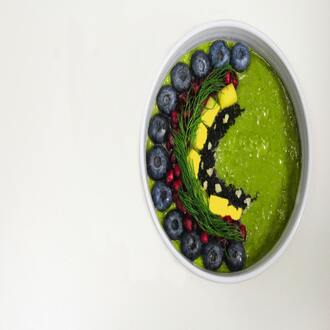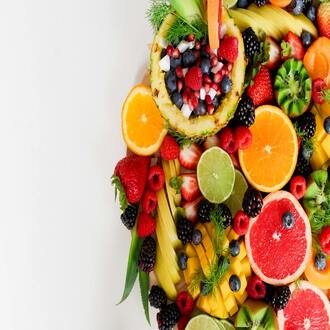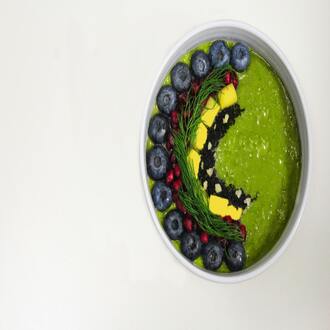Transcription Muscle mass development in vegetarian nutrition
In the last lesson we reviewed some of the myths that circulate around the vegetarian diet. One of them is that vegetarians are thin and it is impossible for them to develop muscle mass; such a statement makes no sense whatsoever. Firstly, although like many other diets, the vegetarian diet promotes the loss of body weight, not all its followers are thin, as this condition is determined by factors beyond food, such as metabolism or body type (ectomorph, mesomorph or endomorph).
Secondly, an aspect to which we will dedicate this guide, vegetarians can indeed develop muscle mass; proof of this is that many celebrities who boast exuberant muscles and recognized fitness figures follow a vegetarian diet.
Protein: The fundamental reason for believing that vegetarian followers cannot build muscle is the absence in their dietary plan of meat, the main supplier of animal protein. This contributes greatly to muscle growth and development, and while it is true that a person who consumes meat is more likely to get stronger than a vegetarian, he or she is perfectly capable of doing so as well.
The followers of the vegetarian diet can obtain proteins from other foods included in their food plan, such as eggs (animal protein), nuts, legumes, among many others.
There is a standard rule that relates the amount of proteins necessary to consume to achieve a development of muscular mass, and it is the following: 2 grams of proteins daily for each kilo of body weight. Therefore, a person weighing approximately 80 kg should consume 160 grams of this macronutrient.
The problem arises when we look at the nutritional value of nuts and legumes: their protein content is low, so that at first glance it would seem that to build muscle in the vegetarian diet is necessary to eat abysmal amounts of these; but not. In order to supply this protein demand we can rely on dairy products (allowed in vegetarianism), with which, we will not have problems to comply with the formula explained above.
Fats: Fats have different classifications, and not all of them are harmful for the organism. Incredibly not many people know it, but there are healthy fats and those are the ones that we recommend to include in the vegetarian diet, especially if you want to increase muscle mass. Among the foods that contain them are avocado, olive oil and olives.
For this macronutrient, the formula is as follows: 1 gram of fat daily per kilogram of body weight.
Carbohydrates: Certainly carbohydrates are important in the process of developing muscle mass, however this is a macronutrient that should be consumed in controlled doses. This is why we recommend choosing whole-grain flours, pastas and rice, seeds and potatoes.
Recommended foods: Here is a list of foods that you should include in your vegetarian diet to achieve the muscle mass gain you desire:
- Whole wheat bread- 7 slices (170 grams)- 14 grams of protein.
- Soy milk- 1 glass (200 ML)- 4.6 grams of protein.
- Lentils- 20 grams- 6 grams of protein.
- Tofu- 60 grams- 4.2 grams of protein.
- Brown rice- 20 grams- 2 grams of protein.
- Vegetables and fruits- 6 servings- 10 grams of protein.
- Quinoa- 50 grams- 8 grams of protein.
A simple meal we can prepare based on these foods is:
- Protein smoothie with soy milk and fruit of your choice.
- Sandwich of whole wheat bread (2 or 3 slices) and a grapefruit.
- A baked potato with avocado and legumes.
- Steamed vegetables with 30 grams of lentils or rice.
development muscle mass




